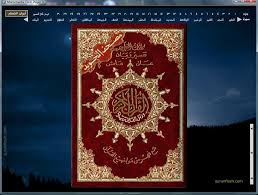لا إلـه إلا الله
source : http://www.as-salaf.com/article.php?aid=53&lang=en
The Word “La ilaha illa Allah”
- A good Word, Allah said -translation of the meaning-:
{Allah sets forth a parable - A good word like a good tree, its root is firmly fixed, and its branches are high in the sky} [14: 24]
- It is the Word of Tawheed and Sincerity (Ikhlas), which all the prophets have called to, from Adam to our Prophet Muhammad [Sallallahu Alayhi wa Sallam], Allah Most High said -translation of the meaning-: {And We have sent not a messenger before you but We reveal to him La ilaha illa Ana so worship Me} [21: 25]
- It is the Word of Taqwa (Piety), according to Ibn Abbas -may Allah be pleased with both him and his father- and his student Mujahid in Allah’s saying -translation of the meaning-: {And We made them abide by the Word of Taqwa (Piety)}, he says: It is the testimony of “La ilaha illa Allah”(2).
- It is a Word whosoever it was his last utterance (speech) in this life enters Paradise. The Prophet (Salla Allaah alaihi wa Sallam) said: “Whosoever had his last utterance “La ilaha illa Allah” will enter Paradise” [narrated by Abu Dawod and others, and it is Hadith Hasan].
The virtues of “La ilaha illa Allah” are numerous, we have limited them to these examples to be brief, and much has been written about it. Whoever desires more should consult relevant sources.
This great word -the Word of Tawheed-, the Muslim says it in his prayers every day, and hears it from the Muadhin (the caller for prayer) every day many times, but do most people know its meaning and what it implies?!
The goal of this article is to make clear the correct meaning of “La ilaha illa Allah” so that the Muslim knows the meaning of the word of Tawheed, to abide by it and call others to it.
.....
Related Articles:
- Tawheed: Its Meaning and Importance
(1) Quran (47: 19)
(2) Jami` Al-Bayan fi Taweel Al-Qur`an (Tafsir) by At-Tabari (22254)
(3) Mu`jam Maqayis Al-Lugha by Ibn Faris (1/127)
(4) Al-Misbah Al-Muneer by Al-Fayyumi, the root “Alah”.
(5) Lisan Al-Arab by Ibn Mandhur , the root “Alah”.
(6) Jami` Al-Bayan (21/653); Tafsir Abdur-Razzaq As-San`ani (2/203); Al-Asma Wa Sifat by Al-Baihaqi (2/343)
(7) Jami` Al-Bayan (21/652)
(8) Tafsir Ibn Abi Zamanin (4/196)
(9) Tafsir As-Sam`ani (5/119)
(11) Tafsir Al-Quran Al-`Adheem by Ibn Kathir (3/239-240)
(12) Jami` Al-Bayan (5/386)
(13) Jami` Al-Bayan (15/261)
(14) Tafsir As-Sam`ani (3/323)
(15) Al-Asma Wa Sifat (1/58) Al-Hashidi edition.
(16) Al-Jami` Li-Ahkam Al-Quran by Al-Qurtubi (2/191)
(17) Mu`jam Al-Furuq Al-Lughawiya (p.68); Abu Hilal Al-Askari died sometime after 395 H.
(18) Tafsir Al-Quran Al-Adheem (1/678)
(19) Tafsir Al-Jalalayn (p.42)
(20) Kashf Al-Qina` `An Matn Al-Iqna` (p. 9)
(21) Sahih Muslim, Kitab Al-Hajj/ chapter “Talbiya, its description and its time”.
(22) Jami` Al-Bayan (19/66)
( * ) He is Qatadah bin Di`ama As-Sadusi (61 - 117 H.), from the Tabi`een.
( ** ) Al-Ilaha, Al-Uluha, and Al-Uluhiya means: worship. (Al-Muhkam Al-Muheet Al-A`dham by Ibn Sayyidah 4/358)
Hajiku 1435H / 2014, Insya-Allah
11 years ago










No comments:
Post a Comment